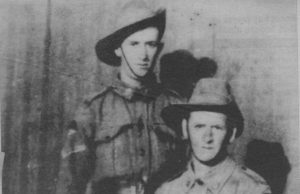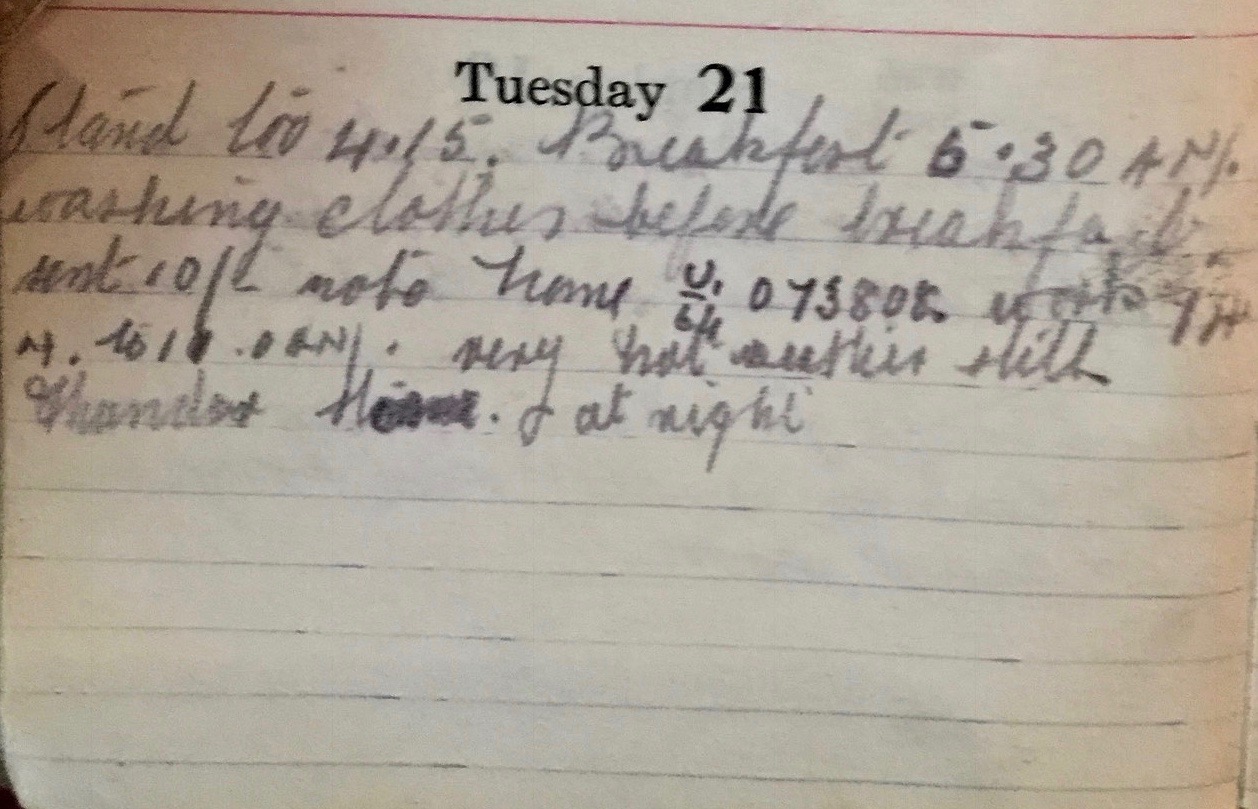Tuesday May 21st, 1918
Stand to 4:15. Breakfast 5:30am washing clothes before breakfast. Sent 10/- note home U64 073808. Work 7am to 11am. Very hot weather with thunder at night.
Stand To
This morning Frank ‘stands to arms’ at 4:15 which must mean that day is breaking earlier and earlier on the Dojran Front.
Captain Stewart describes the order, ‘Stand to’ means that every man has to take up his position in the trenches, with rifle loaded and bayonet fixed, officers keeping on the move. ‘Stand to’ was only ordered at half an hour before daybreak, at dusk and at any other time that an attack might be expected.’ ¹
All the Company, including those that might have just come off night or sentry duty, had to stand to. Received wisdom was that the most likely time for attacks were at daybreak or dusk. Once completed, it was usually rum rations or breakfast for the majority; and company or sentry guard duty for a few. After breakfast would come the fatigues.
Taking Over or Leaving Trenches
‘Stand to arms’ was also used to complete changes of manpower in the trenches. Captain Stewart continues, ‘…[it] was always troublesome business, particularly if the relieving troops were inexperienced. In theory the troops to be relieved ‘stood to’ on the firing step and the incoming troops filed into the trench; the outgoing troops were then supposed to stand down and their places taken by the fresh troops.’ ¹
The change over was made especially perilous if the enemy spotted that the incoming troops were unseasoned. This often prompted a spontaneous attack.

In this vein, Henry John Harris, recalled his first trip to the front line. ‘As soon as we reached the front line, some of the more experienced Diggers were posted on watch, while the rest of us were told to get some rest. At this particular section of the front line there were duck-boards carried on frames about 12 inches above the bottom of the trench and all the duck-boards were coated in ice. In the side of the trench there were holes like little alcoves, dug large enough for two Diggers to sit in facing each other with their legs interlaced with each other for warmth. It was not long before another Digger and myself were sitting huddled together with my sandbag blanket over us, trying to snatch a little sleep.
Just before daylight we were roused to “stand to” with the rifle at the ready, peering towards the enemy’s frontline, as that was the recognised time the enemy may attack, but nothing eventuated. Just after daylight I was ordered to take over from the Digger on watch, and was instructed never to raise my head above the parapet twice consecutively in the same place, but to move about a few yards.’³
Frank has been back and forward to the front line three times now and would definitely be classed as seasoned.
13th (Service) Battalion War Diary – 21st May 1918 – Sporan
Artillery on both sides only slightly active. Patrols had nothing to report. Slight aerial activity on both sides during the day. The grass on Devedzelli Hill has been cut down.
References & Further Reading
¹ ‘A Very Unimportant Officer’ by Captain Alexander Stewart & Cameron Stewart, Hodder & Stoughton, 2009, Kindle, locn 627 & locn 699
² ‘Stand To‘ on Sparticus
³ ‘The memoir of Henry John Harris‘ on The Great War 1914-18. Harris was a 23 year old Australian describing his first time on the front line in December 1917. Later in the war he was gassed and invalided home after recuperation in England.
* photograph from the same memoir. Image may be subject to copyright.


